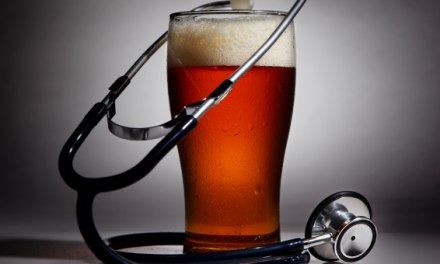One thing that’s always intrigued me: the lengths to which some drinkers will go to avoid acknowledging their problem. Here’s a first person account that illustrates the importance of self-diagnosis — the process that leads someone to conclude they do in fact have an alcohol disorder.
What Does It Mean to Have a Serious Drinking Problem?
To begin with, most folks require further education to correct misconceptions about alcoholism and how to recognize it. That’s how education and self-diagnosis became the first two goals of treatment — prerequisites for the rest.
Ultimately, what we seek is a major shift in the individual’s thinking, away from viewing alcohol as trusted BFF– one that, as the writer states, could “quash my inhibitions; kindle false intimacies; provoke brilliant revelations… [that] made me the outgoing person my unconfident self wanted to be…”– to viewing the drug as a principal culprit in a host of life problems – what some refer to collectively as “the misery.”
Often that process is heavily impacted by stigma. Here the author hopes desperately to avoid a substance diagnosis. “Although I’d grappled for decades with my relationship to alcohol,” she admits, “I didn’t consider myself an alcoholic.” Translation: she wants to reject the conclusion despite the evidence. She keeps on finding and taking quizzes until she stumbles across one that’s at least somewhat reassuring to her self-esteem. Example: “…I scored eight of 40 points, making me a “medium” drinker with a “risky” pattern. But medium didn’t sound too bad and the website said I could alter my drinking without too much difficulty.”
We’ll see about that. No way to know how tough something like this will be until you try. And for her, it wasn’t easy. Like so many, she seeks proof that she’s still in control, by reducing her consumption to “…five nights a week. It was tough. How could I not drink after a rough day? I couldn’t manage two consecutive sober nights. Achieving my two sober nights was always an exercise in military-level strategizing…” Weirdly, despite the struggle, she declares herself victorious. “An actual alcoholic couldn’t skip any nights, I thought. But I could.”
In reality, such difficulty abstaining is evidence in favor of an alcohol diagnosis. One her emotional bias prevents her from accepting, however.
By this time, her search is no longer about whether she has a problem. She knows she has a problem. She’s struggling against the need to make drastic changes. Especially the big one: going from drinker to nondrinker.
That’s the real challenge. Not just quitting for ‘a while’, which most can do. It’s the long term that’s threatening. The idea of quitting permanently terrifies someone who’s been dependent on a drug for years. Twelve Step groups get around this panic by focusing on a single day at a time, the way a coach will tell his team to focus on the next game, not the whole season. Frankly, that’s as good as anything we’ve come across.
Much later in her journey, she finally settles on a diagnosis: the DSM5 version of Alcohol Use Disorder (AUD), moderate. That just means she’s identified 4-5 criteria she meets from the list. If she’d found six, she’d have landed in the “severe” category.
Still, that “moderate” designation makes her feel a lot better about herself. As one college prof put it: Of such hairs is reality split.
Most patients in treatment are at the severe level. That’s because people put it off. At an earlier point, they qualified as ‘moderate’, too. I guess they assumed the worst was over.
It’s worth reminding ourselves that the DSM is a professional tool for qualified clinicians trained in applying its criteria. It’s not a horoscope. Psychiatric diagnosis is differential diagnosis, where disorders share symptoms and it’s easy for an amateur to mistake a swan for a duck. Or completely miss some other disorder that could be even more important.
Also, people with alcoholism may have worked hard to hide the problem from others. Those around them may think they know how bad things are, but later on, discover they had no idea. The situation is likely to have been far worse.
Skipping ahead to the article’s conclusion: Even with her commitment to sobriety, this author is still giving in to an occasional experiment with drinking. So far she’s been able to stop, but it’s never a good idea for a person at this stage to keep testing themselves. Things can turn ugly in a hurry.
The foundation for more serious drinking has already been laid. It’ll seem to happen on its own.
Fortunately, if that does occur, treatment and AA will still be around.













